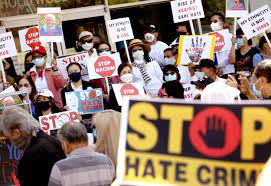Understanding the Legal Landscape of Hate Crimes in India
Introduction:
In recent years, the global discourse on hate crimes has gained significant traction, shedding light on the need for robust legal frameworks to address and combat acts of hatred. India, a diverse nation with a rich tapestry of cultures, religions, and communities, also grapples with the issue of hate crimes. This blog delves into the legal aspects surrounding hate crimes in India, exploring the existing laws, their effectiveness, and the challenges faced in their implementation.
Legal Framework:
India does not have a specific law exclusively dedicated to hate crimes. Instead, offenses related to hate crimes are primarily addressed under existing criminal laws. The Indian Penal Code (IPC) includes provisions that criminalize acts such as assault, rioting, and promoting enmity between different groups on grounds of religion, race, place of birth, residence, language, and more.
Section 153A of the IPC deals with promoting enmity between different groups on the aforementioned grounds. Similarly, Section 295A criminalizes deliberate and malicious acts intended to outrage religious feelings. These sections serve as the backbone of legal recourse against hate crimes, although critics argue that a dedicated law is necessary for a more comprehensive and targeted approach.
Challenges in Implementation:
While the existing legal provisions offer a foundation for addressing hate crimes, their implementation faces various challenges. One major challenge lies in the identification and reporting of hate crimes. Many incidents go unreported due to fear, societal pressure, or a lack of awareness regarding legal remedies. Additionally, there is often a delay in the legal process, resulting in a lack of timely justice for victims.
The Role of Law Enforcement:
Law enforcement agencies play a pivotal role in addressing hate crimes. Sensitizing the police force to recognize and respond effectively to hate crimes is crucial. Training programs that focus on cultural sensitivity, diversity, and understanding the nuances of hate crimes can contribute significantly to improving the response of law enforcement agencies.
Need for a Comprehensive Law:
Advocates for human rights and social justice argue that India requires a dedicated and comprehensive law specifically targeting hate crimes. Such legislation could define hate crimes, prescribe stringent penalties, and establish mechanisms for the swift investigation and prosecution of offenders. A specific law could also include provisions for victim protection and compensation, addressing the holistic impact of hate crimes on individuals and communities.
Community Engagement and Awareness:
Beyond legal measures, community engagement and awareness play a vital role in preventing and combating hate crimes. Educational initiatives, dialogues, and community outreach programs can foster understanding and tolerance, contributing to the reduction of hate crimes at the grassroots level.
Conclusion:
Addressing hate crimes in India necessitates a multi-faceted approach that combines legal, societal, and educational measures. While existing legal provisions offer a foundation, the implementation challenges highlight the need for a dedicated law. As India continues to evolve, it is essential to foster an inclusive and tolerant society where diversity is celebrated rather than a source of division.





